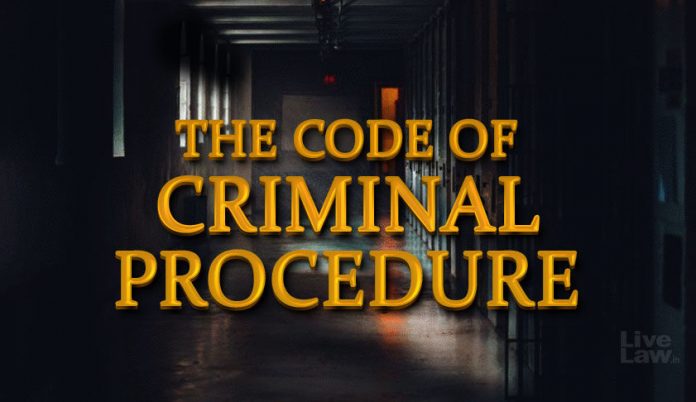This article is written by Anvita Bhardwaj, a student pursuing B.A. LL.B. from Symbiosis Law School, NOIDA. It explains Section 195 of the CrPC, which deals with prosecution for contempt of lawful authority of public servants, for offences against public justice and for offences relating to documents given in evidence. Section 340 has also been elaborated upon, as it lays down the procedure for offences under Section 195.
it has been published by Rachit Garg.
Table of Contents
Introduction
Typically, anyone may initiate criminal proceedings by filing a written or verbal complaint with the police or in a magistrate’s court. However, the legislature, in its wisdom, has restricted this right in respect of certain offences, more specifically enumerated in Section 195 of the Criminal Procedure Code (CrPC), 1973.
In general, the word “cognizance” is defined as “knowledge” or “notice,” and the phrase “taking cognizance of offences” refers to taking cognizance of the alleged commission of an offence. Section 195 of the Code of Criminal Procedure, 1973, is a limitation on the power to take cognizance. In this article, I will discuss all aspects of Section 195 of the CrPC, including its clauses and the courts’ interpretation of this Section through case laws.
Scope and objective of Section 195 CrPC
In India, Section 195 of the Code of Criminal Procedure (CrPC) outlines the legal requirements for prosecution for offences connected to contempt of public servants’ authority, forging of specific documents, using a forged document as genuine, and creation of false evidence. This Section’s goal is to create a legislative framework that protects public employees and institutions from baseless and harassing charges and ensures that those who commit such violations face the consequences.
It outlines the requirements for a court to recognise an offence under this provision as well as the process that must be followed in order to prosecute such offences. Only the public servant or officer in charge of the public office or institution that is the subject of the alleged offence, or the authority to whom such a public servant or officer is subordinate, may file a complaint under this Section.
Additionally, Section 195 of the Criminal Procedure Code forbids the cognizance of offences without the prior approval of the government. In certain circumstances, the cognizance of offences under Sections 191 to 229 of the IPC can only be taken after the prior approval of the government is obtained in order to protect public servants from frivolous complaints.
Section 195 CrPC simplified
Section 195 of the CrPC talks about prosecution for crimes against public justice, crimes involving documents used as evidence, and crimes involving contempt of the lawful authority of public servants.
Section 195 Clause 1
Section 195(1)(a)(i)
No offence punishable under Sections 172 to 188 (inclusive) of the Indian Penal Code, 1860 shall be brought before a court.
Section 195(1)(a)(ii)
No Court shall take cognizance of any effort of abetting or aiding of the commission of such an offence.
Section 195(1)(a)(iii)
A criminal conspiracy to commit such an offence cannot be brought before a court unless the public servant involved or another public servant to whom he is administratively subordinate files a written complaint.
Section 195(1)(b)(i)
When an offence is alleged to have been committed in, or in connection with, any proceeding in any court, no court shall take cognizance of any offence punishable under any of the following Sections of the Indian Penal Code (1860), namely, Sections 193 to 196 (both inclusive), 199, 200, 205 to 211 (both inclusive), and 228.
Section 195(1)(b)(ii)
When an offence is alleged to have been committed in relation to a document submitted or given in evidence in a proceeding before any court, no court shall cognize the offence under Section 463 or punishable under Sections 471, 475, or 476 of the aforementioned Code.
Section 195(1)(b)(iii)
A criminal conspiracy to commit, attempt to commit, or abetment in the commission of any of the offences listed in sub-clauses (i) or (ii) may only be brought before a court on a written complaint from that court or another court to which it is subordinate.
Section 195 Clause 2
Any authority to which a public servant is administratively subordinate may order the withdrawal of a complaint made pursuant to clause (a) of sub-section (1), and upon receipt of the order by the court, no further action with respect to the complaint shall be taken: Provided, however, that no such withdrawal shall be ordered if the trial in the Court of First Instance has been completed.
Section 195 Clause 3
The term “court” is expressed in sub-section (1), clause (b), as a civil, revenue, or criminal court, as well as a tribunal established by or operating under a central, provincial, or state Act if such Act designates that tribunal as a court for the purposes of this Section.
Section 195 Clause 4
For the purposes of clause (b) of sub-section (1), a Court shall be deemed to be inferior to
- the Court from which appeals ordinarily may be taken from the appealable judgments or
- sentences of such former Court, or
- in the case of a Civil Court from whose judgments no appeal may ordinarily be taken, to the principal court having ordinary original civil jurisdiction within whose local jurisdiction such civil court is situated:
Section 195(4)(a)
In situations where appeals lie in more than one court, the appellate court with inferior jurisdiction would be deemed to be such a court that is subordinate.
Section 195(4)(b)
Where appeals are allowed to both the civil and revenue courts, the revenue court shall be judged to be superior to the civil court depending on the nature of the case or action in which the alleged offence was committed.
Case laws interpreting the legislative intent behind Section 195 CrPC
- In Sushil Kumar v. State of Haryana, (1988), the Court determined that the provisions of Section 195(1)(b)(ii) do not apply because the allegedly forged document was not produced in court;
- In Chandrapal Singh v. Maharaj Singh, (1982), the Court determined that Section 195(3) establishes a prerequisite for taking an offence under Section 193 of the Code.
- In MS Ahlawat v. State of Haryana, (1999), it was determined that Section 340 of the CrPC prescribes the process as to how a complaint may be preferred under Section 195 of the Code, whereas Section 195 of the Code says that no court may take cognizance of the offences listed in Section 195 of the CrPC without first complying with its obligatory provisions.
Conditions to be satisfied in order to invoke Section 195 CrPC
Before a court can take cognizance of an offence under Section 195 of the Code of Criminal Procedure (CrPC), a number of prerequisites must be met. These circumstances include:
- The person in charge of the public office or institution that is the subject of the alleged offence, or the authority to whom such public worker or officer is subordinate, must file a complaint.
- The person filing the complaint must do so in writing and with their signature.
- The nature of the alleged offence and the supporting documentation must be specified in the complaint.
- A copy of the record or other supporting documentation that serves as the basis for the charge must be included with the complaint.
- No court may adjudicate a violation of this Section’s provisions until the accused has had a chance to present his or her defence.
- No court may take notice of an offence under Sections 193, 194, 195, 196, 199, 200, 205, 206, 207, 208, 209, 210, 211, and 228 of the IPC without the prior approval of the Government or the authority to whom the public worker is subordinate.
- Additionally, in some circumstances, the government must first grant prior approval before the offences under Sections 191 to 229 of the IPC can be officially recognised.
It is significant to note that in order for a court to take cognizance of an offence under Section 195 of the CrPC, all of these requirements must be satisfied; otherwise, the court may dismiss the complaint.
Section 340 – Procedure for cases listed under Section 195 CrPC
Clause 1
When a court receives a request in this regard or otherwise determines that it is necessary for the administration of justice to conduct an investigation into an offence listed in sub-section (1)(b) of section 195 that appears to have been committed during or in connection with a proceeding in that court, or, as the case may be, with respect to a document produced or offered as evidence in a proceeding in that court, the court may, after such preliminary inquiry:
- Record the finding.
- Make a written complaint.
- Send that written complaint to the First Class Magistrate who has jurisdiction over the matter.
- Take adequate security measures before producing the accused in front of the Magistrate. In case it is a non-bailable offence, the accused can also be sent to custody under the Magistrate.
- Bind over people to appear before the Magistrate to give evidence.
Clause 2
The court to which such former court is subordinate within the meaning of sub-section (4) of Section 195 may, in any case where that court has neither made a complaint under sub-section (1) in respect of that offence nor rejected an application for the making of such a complaint, exercise the power granted to that court by sub-section (1) with respect to that offence.
Clause 3
When a complaint is made under this Section, it will be signed:
- In the case of a High Court: by an officer appointed by the Court.
- In the case of any other court: by a presiding officer.
Clause 4
“Court” has the same meaning here as is provided under Section 195.
The conflict between Section 188 of IPC and Section 195 of CrPC
What is Section 188 IPC
According to this Section, if a civil servant with legitimate authority has issued an order and the accused person has willfully disobeyed it, which has resulted in or is likely to result in obstruction, annoyance, injury, a risk to anyone with lawful employment, or danger to life, health, or safety and if disobedience causes obstruction, irritation, or harm to a person who is lawfully employed, the offender will be penalised with either a term of imprisonment up to one month, a fine up to 200 rupees, or a combination of the two.
However, where it puts human life, health, and safety in danger, the perpetrator shall be penalised with either a term of imprisonment that may not exceed six months, a fine that may not exceed one thousand rupees or both. The type of offence covered by this Section is one that is both cognizable and bailable. It was discovered during the Covid-19 lockdown that any violation of the lockdown order would be subject to a violation under the second part of Section 188 IPC.
Conflict
A crucial question about whether a police officer can make an arrest without a warrant because of the restriction imposed by Section 195 CrPC has arisen. This means that a police officer has the authority to make an arrest without a warrant, as well as to file an FIR and begin an investigation into the offence. This also means that the police may submit the final report required by Section 173(2) of the Code of Criminal Procedure to the appropriate court at the conclusion of the investigation. Section 195 of the CrPC enters the scene at precisely this point. In connection with certain offences, this Section envisions a unique procedural requirement. No court may take cognizance of an offence punishable under Sections 172 to 188 of the Indian Penal Code except on a complaint led by the public servant concerned or his superior, according to Section 195(1). This simply means that the competent court cannot consider a complaint from a private person regarding disobedience to a lawful order of a public servant offence. Investigating agencies, prosecution agencies, and state authorities have frequently disregarded or misconstrued this procedural intricacy in the implementation of Section 188 of the Indian Penal Code, which has led to litigation before the courts from throughout the nation.
According to the First Schedule CrPC, only on the basis of a written complaint brought before it by the public official whose order the accused has disobeyed has an offence under Section 188 IPC been made. Therefore, the bar imposed by Section 195 of the CrPC won’t be an issue if, in addition to the police report, a complaint by the concerned public servant can be presented before the court that would otherwise have the authority to take cognizance. The court may conduct an inquiry or order an investigation to be made under Section 202 of the CrPC after questioning the complainant and witnesses in accordance with Section 200 of the CrPC. The court may then issue a process under Section 204 of the CrPC or dismiss the complaint in accordance with Section 203 of the CrPC. As a result, a Section 188 IPC prosecution cannot be started based only on a police report.
This conflict caused numerous issues during the COVID-19 lockdown when the courts were not fully operational, and it must be addressed so that similar issues do not arise in the future.
Frequently Asked Questions (FAQs)
Is Section 195 a bailable offence or a non-bailable offence?
Section 195 is a bailable offence.
Can Section 195 operate independently?
No, Section 195 cannot operate without Section 340 of the CrPC. Without Section 340, there would be no clear procedure for prosecuting individuals for offences under Section 195.
References
- https://indiankanoon.org/doc/621703/
- https://districts.ecourts.gov.in/sites/default/files/8-Offences%20affecting%20Administration%20-%20Smt%20M%20Manasa.pdf
- http://lawhelpline.in/PDFs/CRIMINAL_LAWS/Legal_Bars_for_Prosecution.pdf
- https://www.worldwidejournals.com/indian-journal-of-applied-research-(IJAR)/recent_issues_pdf/2020/September/the-conflicting-requirements-of-section-188-of-the-indian-penal-code-and-section-195-of-the-code-of-criminal-procedure_September_2020_1598959459_1413347.pdf
Students of Lawsikho courses regularly produce writing assignments and work on practical exercises as a part of their coursework and develop themselves in real-life practical skills.
LawSikho has created a telegram group for exchanging legal knowledge, referrals, and various opportunities. You can click on this link and join:
Follow us on Instagram and subscribe to our YouTube channel for more amazing legal content.
 Serato DJ Crack 2025Serato DJ PRO Crack
Serato DJ Crack 2025Serato DJ PRO Crack











 Allow notifications
Allow notifications


